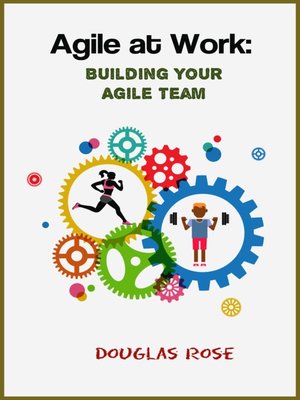
Sign up to save your library
With an OverDrive account, you can save your favorite libraries for at-a-glance information about availability. Find out more about OverDrive accounts.
Find this title in Libby, the library reading app by OverDrive.



Search for a digital library with this title
Title found at these libraries:
| Library Name | Distance |
|---|---|
| Loading... |
NB: There are Video Tutorials supporting this eBook. Links to video tutorials are there inside this eBook!
Agile refers to training of unique approaches and methodologies towards effective software development and project management. Agile methods are based on creating collaborative, cross-functional and self-organized teams or work groups. Agile tactics are designed to lead to greater team performance and advanced efficiency. These methodologies are focused on producing better results than those expected when using conventional techniques. More importantly, training in Agile helps organizations to most speedily respond to the changing needs of their customers, reduce business risks, mitigate uncertainty often caused by varying market forces and raise business ROI by dwelling more on customer value.
Agile is becoming the preferred project management approach for fast-moving projects. At the heart of any agile project lies an agile team. In this course, the first in our website's Agile at Work series, expert Douglas Rose uses a sample project to show how to build your agile team. A team with an agile mindset is self-organized, collaborative, and accountable.
The methodologies taught in Agile courses vary to a great extent. Each methodology explains a different way of handling software development and general project management. When undergoing training in Agile, you will find that what one training course focuses on may be completely different from what another emphasizes. This is due to the different methodologies and approaches of Agile. There are mainly six Agile methodologies namely Scrum, DSDM, XP, Lean, TDD and Kanban. Agile certifications will always vary depending on the methodology one chooses to go for.
Topics include:
So, Agile is a software development methodology that fosters rapid delivery of valuable, working software in an iterative manner. It values people and communication over processes and tools. It prefers working software over comprehensive documentation. It favors active and dynamic involvement of the customer and proper, effective identification of the true needs of the business over contract negotiation. It advocates the ability to nimbly respond to change, even late in the development process to following a detailed, predefined plan.







